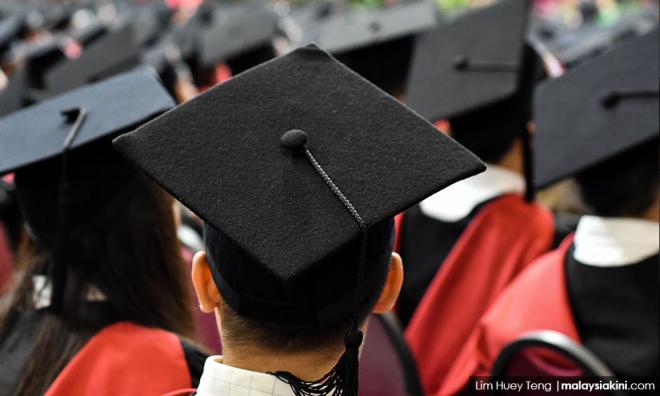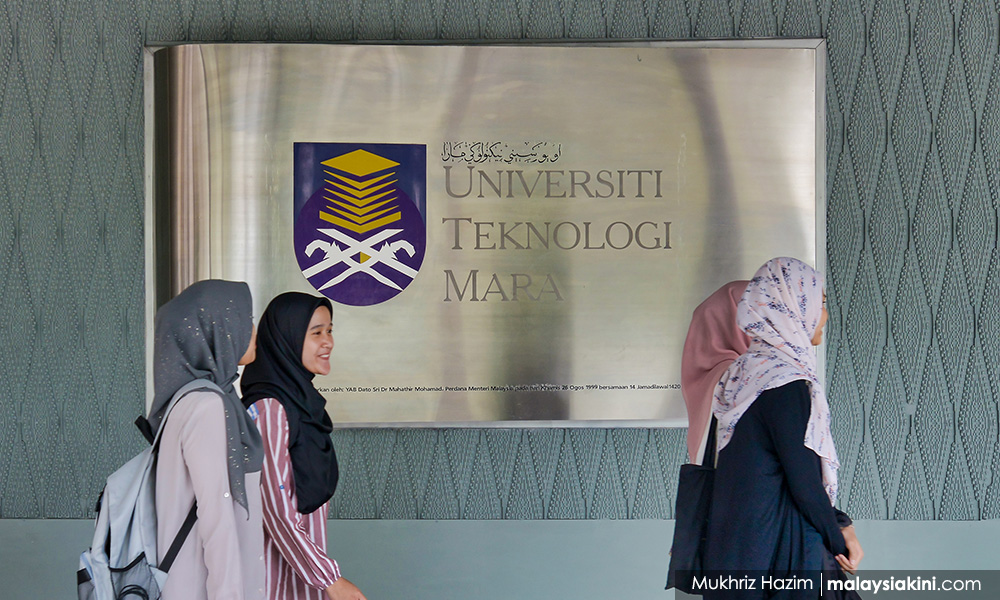
Two researchers at Khazanah Research Institute (KRI) have cautioned against unchecked meritocracy in tertiary education institutions which could promote and widen inequality, including during the Covid-19 pandemic.
This is despite statistics suggesting public higher education institutions in the country are still serving the needs of students from disadvantaged socio-economic backgrounds.
“In 2017, close to half of graduates were from households earning less than RM2,000 per month. The proportion of graduates from households in this income group was the highest compared to other income groups.
“Despite conventional wisdom that education is important to narrow the disparity between societies and within a society, if left unchecked it could serve as a means to exacerbate inequality,” said Jarud Romadan Khalidi and Hawati Abdul Hamid in an article on the KRI website.
The article is the researchers’ personal views and does not necessarily reflect the views of KRI.
However, in reality, they said, children from well-off families are born in “privileged” conditions and have advantages as they are sent to the best kindergartens and schools as well as having better access to resources like health care and nutrition.
“Thus, unchecked meritocracy can promote and widen inequality. Even so, this does not negate the importance of meritocracy,” they said.
Meritocracy should be practised with caution and with a clear awareness of who would be left behind in the “academic arms race”, the duo said, as they advocated for an open, inclusive and broad educational system.
The researchers urged for better data collection on prospective and current students’ socio-economic background in order to make better-informed policies on the admission process into public universities.
Having this data also gives the universities the capacity to better identify and assist disadvantaged students, they added.

“Considering the contribution of tertiary education to upward mobility for the poor, measures can be put in place to ensure these children remain in school during times of crises, including providing the equipment for online learning should long-distance learning become necessary.
“Events such as the Covid-19 pandemic will be a dent to Malaysia’s progress in reducing inequality and promoting social mobility.
“We should ensure that higher education continues to be a platform that can cushion these impacts,” they said.
The researchers explained that they decided to look into the data on the socio-economic backgrounds of students as the Education Ministry received the largest allocation from the Budget 2020, at RM64.1 billion.
Of this amount, RM11.4 billion, or almost 20 percent of their total allocation was intended for the higher education sector.
“Based on existing evidence, tertiary education is generally considered a means to promote upward social mobility especially for the poor, thus justifying the government funding of higher education.
“Considering this relatively huge amount, it is worthwhile reviewing the profile of the students, that is those benefiting from the budget, both directly and indirectly.”
Data from the Education Ministry's 2017 Tracer Study, which involves all graduates of local higher education institutions, revealed that 14,827 graduates, or almost 20 percent of the total graduates, were from families earning below RM1,000 per month.
“Considering the average absolute poverty line is currently around RM1,000, the data reveals that almost a fifth of these graduates were from poor families.
“In contrast, only 11,167 graduates, or 14.4 percent, were from families earning more than RM5,000 monthly,” Jarud and Hawati said.
They also compared the shares of graduates and households between groups, and revealed that there is a concentration of graduates from lower-income groups.
For example, while 8.8 percent of households were in the RM2,000-and-below income group, close to half of the graduates were from this group.
The researchers also looked at data on enrolled students, focusing on public higher education institutions as they are mainly funded by government allocation.
As there were no income data collected on the backgrounds of enrolled students, they used the parents’ highest education level as a proxy for the students’ socio-economic status.
They found that 43.7 percent of students in public higher education institutions were from families where the parents had secondary education at most.
“Since education level is generally believed to be closely linked with income level, this finding suggests that the majority of the students were not predominantly from a high economic background,” they said. - Mkini



HAHAHAHA Inequality lagi! I have been hearing this "Inequality" since the 70's and till today its still "Inequality".
ReplyDeleteKalau dah tak boleh macam mana pun memang tak boleh laa.
The chinese was the red herring or poster boy for Inequality but they are still moving forward and moving upwards despite the oppressive circumstances, WHY?
Kalau dah Boleh macam mana pun mesti Boleh laa.
Stop kidding yourselves laa weii.
I've seen this "Inequality" since the 1970's and its still "Inequality" until now. I am looking for online school management system can you share on it.
ReplyDelete